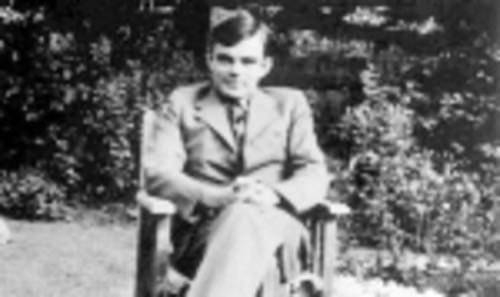The World War II papers of British computer scientist and codebreaker Alan Turing went up for auction today at Christie’s in London, but failed to reach the minimum price set by the seller. In an effort to keep those papers at Bletchley Park, the site of the British Government Code and Cypher School, Google had donated $100,000 towards the bid by the Park’s trust.

Bletchley Park Trust is home to the National Museum of Computing, which would like to keep Turing’s work on public display. As with any auction of this sort, many fear that a private collector winning the auction would mean that the papers would not be available to the public.
Google announced its contribution this morning: “Dr Turing is a hero to many of us at Google for his pioneering work on algorithms and the development of computer science.” Google’s support still left the Bletchley Park’s fund about £400,000 short of Christie’s £500,000 valuation. And at the bidding this afternoon, the price only reached £240,000. The failure to sell the papers today means the Park will have to look for another deal to save the archive for the public.
The collection of papers includes a number of handwritten notes, as well as Turing’s first published paper. It’s thought to be the largest collection in the world of Turing’s work. Often called “the father of the computer,” Turing created a machine that was able to crack the German Enigma code while he was stationed at Bletchley Park during World War II. He committed suicide in 1954, after being sentenced to chemical castration for his homosexuality.
Last year, the British government apologized for Turing’s “horrifying” treatment.

















